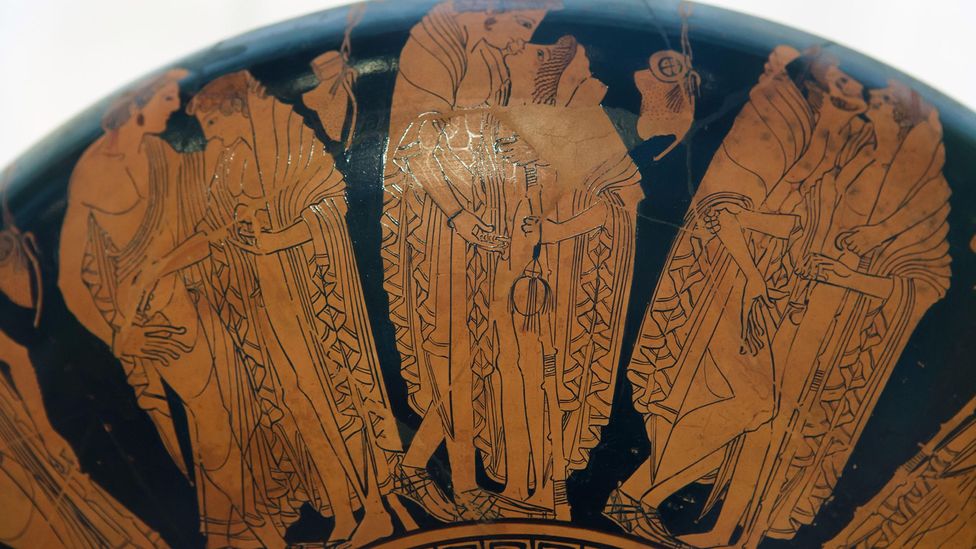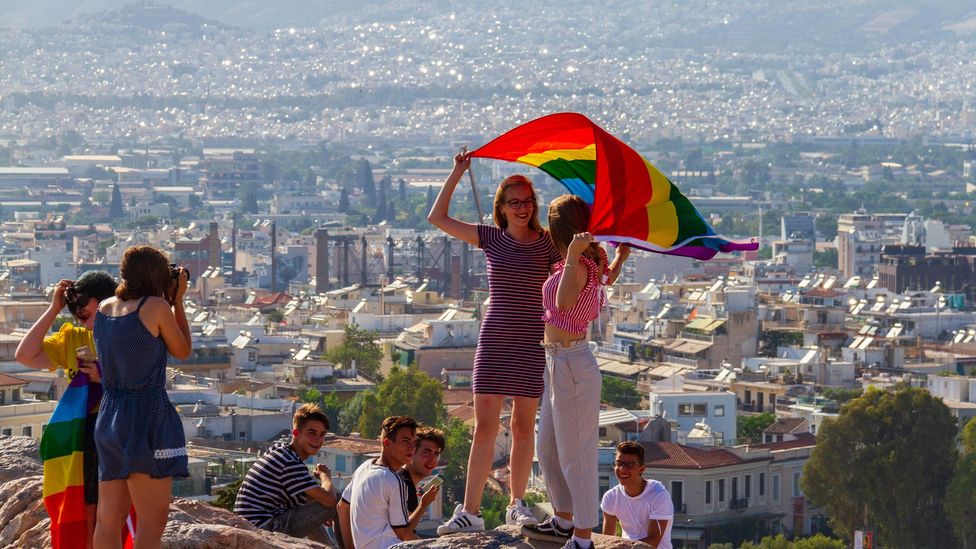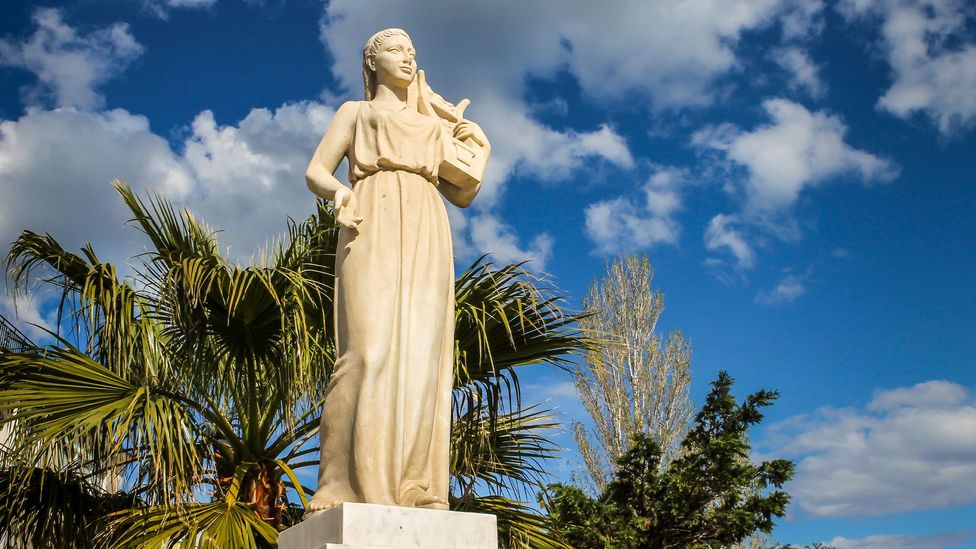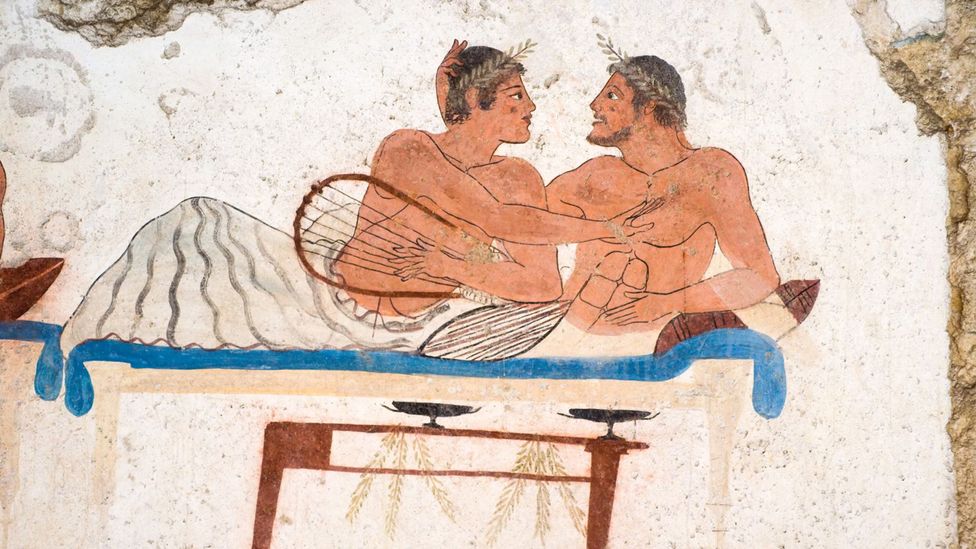My first visit to the island of Mykonos 20 years ago was something of a revelation. Thanks to its seemingly endless queer beaches and bars, I felt a level of freedom as a young gay man that I hadn't previously experienced, despite growing up in London. But like the UK and elsewhere, Greece's LGBTQ+ community has fought a long road to equality, which culminated just this month.
Following a landmark vote in parliament this month, Greece has recently become the first Christian Orthodox-majority nation to legalise same-sex marriage, and the first country in south-eastern Europe to have marriage equality.
According to Greece's Prime Minister Kyriakos Mitsotakis, the new law, which also allows same-sex couples to adopt children, will "boldly abolish a serious inequality". Greece now joins 35 other nations around the world to allow same-sex marriage. It ranks 11th on the ILGA-Europe Rainbow Index, which measures countries' LGBTQ+ equality – four spaces higher than the UK at 15, but well below Malta, at number one.
But despite lagging behind other nations that embraced marriage equality years earlier, same-sex relations have been a common and documented part of Greece's cultural fabric from the beginning.

Frescoes, vessels and other artefacts of courting same-sex couples have been recovered throughout Ancient Greece (Credit: Alamy)
As early as the 8th Century BC, the ancient lawmaker Philolaus of Corinth, who himself had a male lover, created laws in support of same-sex male unions. By the 7th Century BC, there were at least five different varieties of same-sex relations in Ancient Greece. The Sacred Band of Thebes was an elite military unit comprised of 300 male lovers in the 4th Century BC who courageously ended Spartan domination. And millennia after writers and philosophers such as Plato were busy contemplating same-sex love, many vessels and statues on display in museums and sites in illustrate aspects of homosexuality in Ancient Greece.
In 1951, Greece became one of the first European nations to decriminalise same-sex relations (the UK waited until 1967; though in both countries, lesbians were neither mentioned nor acknowledged). Greece legalised same-sex civil unions in 2015, and in 2021 Nicholas Yatromanolakis became the nation's first openly gay person to serve as government minister.
"Greece has made some progress in LGBTQ+ rights over the past decade," said Konstantinos Menelaou, the founder of Athens-based art collective The Queer Archive. "There have been notable improvements in legal protection, public attitudes and visibility. However, we still suffer from discrimination, violence and stigma. There's room for improvement."
Menelaou's pioneering organisation is designed to bolster and support LGBTQ+ arts and culture across Greece. "Our aim is to fight stereotypes, document queer history and develop inclusive areas for expression, visual arts, performance, film. We give a platform to marginalised voices, combat erasure and discrimination, and promote the idea of a balanced and equal society."

Athens is home to a vibrant LGBTQ+ scene (Credit: Alamy)
As well as the Queer Archive, which hosts regular pop-up exhibitions and curatorial collaborations, Athens boasts many thriving venues for LGBTQ+ travellers, some of which are located in the former industrial district Gazi. Menelaou recommends Koukles for "the best drag shows and atmosphere", the queer dance club Smut, The Big Bar "for bears and bear enthusiasts" and Ohh Boy for coffee and cakes. "The queer community of Athens has to deal with brutal heteronormativity on a daily basis," Menelaou added. "But we know how to party!"
Lesbos-based writer and yoga instructor Clare Hand is also a fan of Athens' LGBTQ+ scene. She recommends the lesbian-owned pop club Noiz and "Beaver Co-op, founded by eight women, a peaceful cafe with parties, readings, poetry and activist gatherings".
Hand's point about activism is important to the LGBTQ+ community in Athens. "Greece is a conservative country, you feel the reins and the ropes of family, and family values, binding queer people. It's not just about getting married and having kids here: to be queer in the capital city you really need to be an activist."
According to Hand, the nation's second city, Thessaloniki, also has a vibrant, if smaller, queer scene that's worth visiting. She recommends the long-running gay club Enola, which has been open since 2008, and the city also hosts its own International LGBTQ+ Film Festival.

A statue of Sappho stands in the village of Mytilene in Lesbos (Credit: Alamy)
The big news, however, in 2024 is that Thessaloniki is set to attract global attention as it hosts Europride (21-29 June). A major highlight will be the Thessaloniki International Documentary Festival's Citizen Queer, which will screen 25 LGBTQ+ documentaries over the course of the week.
But Hand's favourite queer scene in Greece is on the rugged island that birthed the word "lesbian": Lesbos. "When I first landed on that tiny island the feeling was extraordinary," she said. "In particular Eressos, the town where Sappho, [the Archaic Greek poet who inspired the word "sapphic"] was born, which is why it's been a mecca for queer women for half a century. It's the complete epicentre of queer, or sapphic, life: one of the most affirming experiences you can have is to be in the majority for more than a night, for more than an allotted window of time. You realise there are more lesbian bars and cafes in Skala Eressos than anywhere in the world – even LA, New York, London."
A big annual event on the island is the Queer Ranch Festival (28 May-1 June 2024) run by a local collective who own the bar-restaurant Ohana Saloon. Another must is the International Eressos Women's Festival, held each September. "For over 20 years, [it's been] an important meeting space for queer elders who've been visiting the island since the 1970s."
Back in Mykonos, on that first visit two decades ago, I remember being thrilled to discover its genesis as a queer haven also dated back to the '70s, the result of Jackie Onassis' patronage lending it a certain glamour. By the 1980s, it had transformed into an increasingly gay destination, with one of its most well-known bars named after her. It, too, hosts a large annual gay festival, Xlsior (22-28 August), with around 30,000 attendees.
And now, in 2024, you could even tie the knot on one of Mykonos' many queer beaches. As Menelaou said, "The same-sex marriage bill partly achieved what should have been for granted: the legal recognition and equality for LGBTQ+ individuals. Hopefully, it will challenge stigma and promote inclusivity."
---
Join more than three million BBC Travel fans by liking us on Facebook, or follow us on Twitter and Instagram.
If you liked this story, sign up for the weekly bbc.com features newsletter called "The Essential List". A handpicked selection of stories from BBC Future, Culture, Worklife and Travel, delivered to your inbox every Friday.
